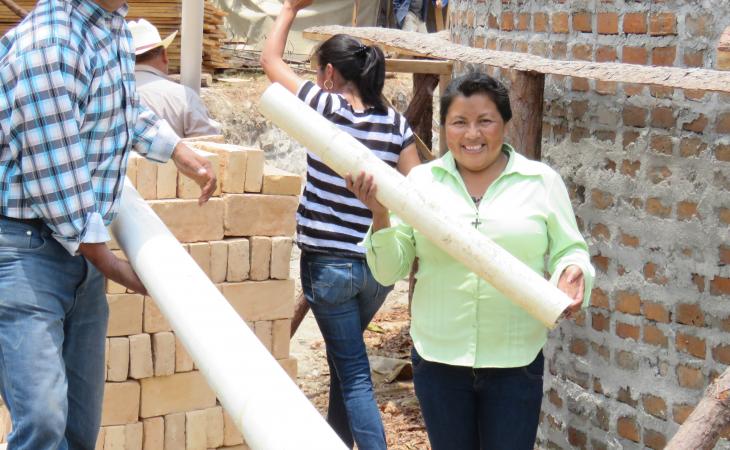This website uses cookies so that we can provide you with the best user experience possible. Cookie information is stored in your browser and performs functions such as recognising you when you return to our website and helping our team to understand which sections of the website you find most interesting and useful.
News
Sustainable Development Brings Clean Water to Honduran Village
Volunteers from Water Engineers for the Americas (WEFTA) are working with villagers to install PVC pipeline to bring clean, running water to Belen Manazapa for the first time. It’s a hand-on approach that requires the community to invest in the project with both sweat equity and a financial contribution.
The WEFTA approach is designed to ensure that the pipeline is maintained and clean water flows long term. In particular, by contributing volunteer labor and a percentage of the project funding, communities:
- Gain a sense of ownership—Because every member of the community contributes family resources to the project, villagers are more motivated to maintain the water system over the long term. In addition, by laying the PVC pipe and building the system, they learn how to maintain it.
- Move toward self-reliance—By contributing financially to the project, communities are building a fund to maintain the system. The long-term goal is to enable communities, as they grow, to have the means to undertake water projects on their own.
- Deploy sustainable technology—Using community volunteer labor and setting a construction budget based on the community’s financial resources requires the use of sustainable technology. Inexpensive, easy-to-use PVC pipe is one essential element to ensuring that this philosophy of sustainable development works in practice.
In Yamaranguila, for example, the population has doubled in the decade since WEFTA and the community, with support from the Vinyl Institute and the American Chemistry Council’s Chlorine Chemistry Division, built a PVC pipeline to transport safe, potable water. In addition, Yamaranguila has experienced economic development, including new stores, workshops, and an agricultural research center. In the words of one community leader, “Everyone knows Yamaranguila has the best quality water in the region, so many people now want to live here to start their businesses and raise their families.”


